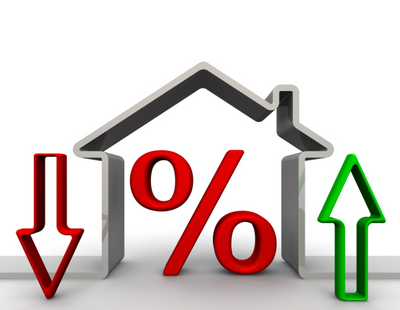Prices were up 1.7% annually, down from 2.3% a month before.
The typical UK home now costs £291,699, around £1,000 more than last month.
Northern Ireland posted the highest house price growth, up 5% annually in February, while the North West saw positive growth of 4.4%
Prices in the capital have increased 1.5% and it is the first positive annual growth seen since January 2023, Halifax said.
Properties in Eastern England fell the most last month, down 0.8%.
Kim Kinnaird, director at Halifax Mortgages, said: “These figures continue to suggest a relatively stable start to 2024 and align with other promising signs of increased housing activity, such as mortgage approvals.
“In fact, the average price tag of a home is now only around £1,800 off the peak seen in June 2022. While it is encouraging that we’ve seen growth in recent months, what happens next remains uncertain.
“Although lower mortgage rates, alongside expectations of Bank of England interest rate cuts this year, should help buyer confidence in the short term, the downward trend on rates is showing signs of fading.
“Even with growing wages and inflation falling back, raising a deposit and affording a sizeable mortgage remains challenging, especially for those looking to join the property ladder, so it remains a possibility that there could be a slowdown in the housing market this year.”
Commenting on the index, Guy Gittins, chief executive of Foxtons, said: "UK homebuyers have welcomed the increased degree of market stability that has come following the decision to hold interest rates at 5.25% since September of last year and as homebuyers have returned to the market we’ve seen declining house prices start to reverse.
“These figures provide further evidence of these improving market conditions and while we’re yet to see a base rate reduction materialise in 2024, the outlook remains a positive one for the year ahead.”
Tom Bill, head of UK residential research at Knight Frank, added: “Inflation is likely to hit its 2% target before the summer, a year ahead of the OBR’s November forecast. That’s good news for anyone buying or remortgaging as it will bring down borrowing costs.
“However, financial markets are expecting fewer rate cuts than the start of this year due to stubborn wage growth. This mixed picture means transactions should increase versus last year and we expect prices to rise by 3% but the last two months of weaker inflation signals have been a useful reminder that asking prices need to remain realistic. The regional breakdown shows how affordability remains a big constraint on the market, with better-value areas seeing stronger price growth over the last year.”
















.png)


.png)




Join the conversation
Be the first to comment (please use the comment box below)
Please login to comment